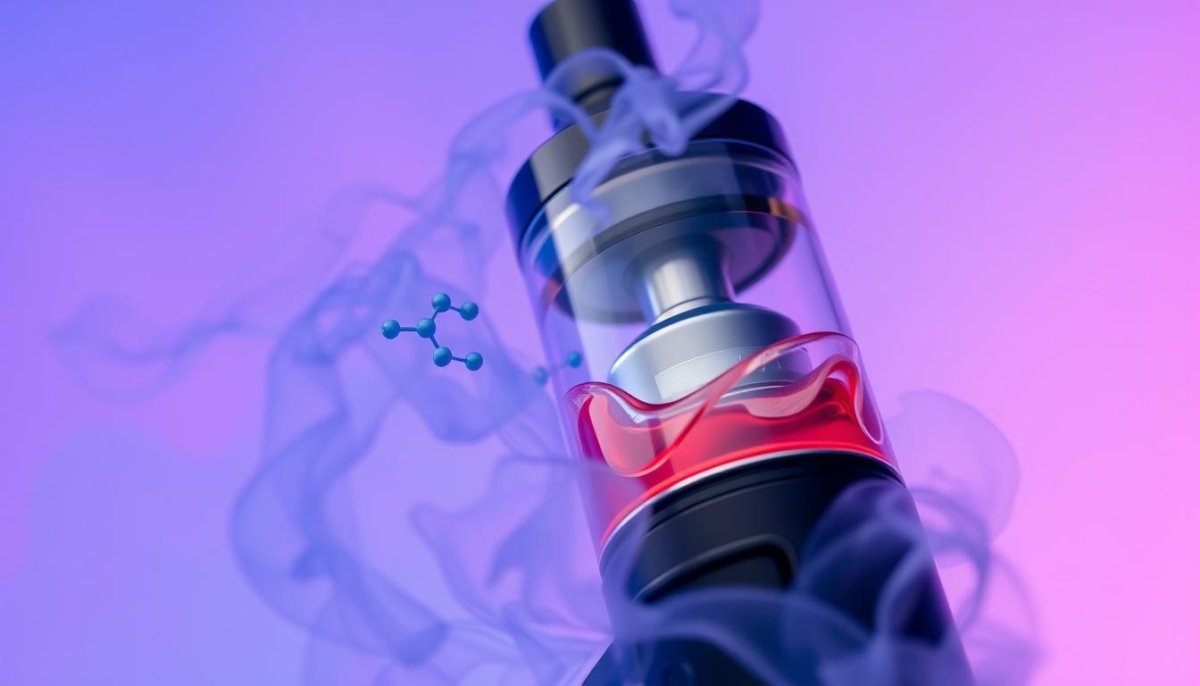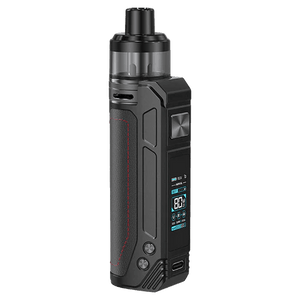Do Vapes Contain Nicotine? An Expert Opinion

Do Vapes Contain Nicotine? An Expert Opinion
Are you wondering if vapes really have nicotine? The truth might be more than you expect. In the UK, vaping products are closely watched. Most e-cigarettes have different amounts of nicotine, which can affect your health and how addictive they are.
Do vapes have nicotine? Yes, often they do. E-cigarettes in the UK usually have nicotine, taken from tobacco. You can find products with little to a lot of nicotine, giving you choices.
Exploring vaping means looking at what's in them, the rules, and health effects. Nicotine in e-cigarettes is a big deal in tech and health, always changing.
Key Takeaways
- Vapes frequently contain nicotine extracted from tobacco
- Nicotine concentrations range widely between products
- UK regulations ensure strict quality control for vaping products
- E-cigarettes offer variable nicotine strength options
- Understanding vaping requires thorough research
Understanding Vaping and Nicotine
Vaping has changed how we use nicotine, giving us a new way to enjoy it. E-cigarette devices have grown a lot, giving us many choices for nicotine and vaping.
What is Vaping?
Vaping means breathing in vapour from an electronic device. This vapour comes from a liquid that's heated. Unlike regular cigarettes, e-cigarettes don't burn tobacco. They make an aerosol by heating liquids that might have nicotine.
The Evolution of Vaping Devices
Vaping technology has gone through many changes, each one better than the last:
- 1st Generation (Disposable): Single-use devices with basic features
- 2nd Generation (Prefilled/Refillable): Rechargeable devices with replaceable parts
- 3rd Generation (Tanks or Mods): Customisable devices with advanced options
- 4th Generation (Pod Mods): Small devices using nicotine salts for better flavour
| Generation | Key Characteristics | Nicotine Delivery |
|---|---|---|
| 1st Generation | Disposable, single-use | Fixed nicotine levels |
| 2nd Generation | Rechargeable, refillable | Adjustable nicotine options |
| 3rd Generation | Fully customisable | Wide range of e-cigarette nicotine levels |
| 4th Generation | Pod systems with nicotine salts | Smooth, high-intensity nicotine delivery |
Today, vaping devices offer a lot of choices, including ones without nicotine. The technology keeps getting better, giving us more ways to vape.
Vaping is a big step forward in nicotine use, giving us more control over our experience.
The Role of Nicotine in Vapes
Nicotine is key in vaping, attracting many users. Knowing its effects is vital for those trying vaping products.
What is Nicotine?
Nicotine comes from tobacco plants. It's the main ingredient in cigarettes and e-cigarettes. In vape juice, it's available in various strengths to meet user needs.
How is Nicotine Used in Vaping?
Users can choose from different nicotine levels in vape juice. The UK offers options from:
- 0mg (nicotine-free)
- 3mg - Low strength
- 6mg - Medium strength
- 12mg - High strength
- 20mg - Maximum legal strength in UK-regulated devices
Nicotine salts are gaining popularity. They offer a smoother hit and quicker absorption than traditional nicotine. This makes it easier to enjoy higher nicotine levels without irritation.
*"Nicotine strength selection is a personal journey that depends on individual smoking history and nicotine tolerance."*
Studies show UK-regulated disposable vapes have about 40mg of nicotine in 2ml of liquid. This gives users around 20mg. It's much less than the 200-300mg in a traditional cigarette pack.
Knowing about nicotine helps users make better choices about vaping. It's about balancing risks and personal likes.
Types of Vapes and Their Nicotine Content
The world of vaping devices is complex, with many options for those looking for nicotine alternatives. It's important to know about vape pen nicotine amounts and the risks of vaporisers. This knowledge helps in making smart choices.
Exploring Vaping Device Varieties
In the UK, there's a wide range of vaping devices to meet different needs and nicotine levels. These devices fall into several main categories:
- Disposable Vapes
- Rechargeable Pod Systems
- Vape Pens
- Advanced Modification (Mod) Devices
Disposable Vapes: Convenient Nicotine Options
Disposable vapes are popular for their simplicity and pre-filled nicotine. They often have high nicotine levels, appealing to those quitting smoking.
| Device Type | Nicotine Strength Range | Typical Usage |
|---|---|---|
| Disposable Vapes | 10-20mg | Short-term use, smoking cessation |
| Pod Systems | 5-18mg | Intermediate users, customisable |
| Advanced Mods | 0-6mg | Experienced vapers, lower nicotine |
Understanding E-Liquid Nicotine Variations
E-liquids have different nicotine levels, letting users control their intake. The right concentration depends on how much you smoked and how dependent you are on nicotine.
"Choosing the right nicotine strength is key to a successful vaping experience and potentially quitting smoking."
With so many vaping devices available, people can find what suits them best. This can help lower the risks of nicotine from vaporisers by controlling how much is used.
Health Implications of Nicotine in Vapes
Vaping has become a hot topic in health, with e-liquids containing nicotine. They might have risks but also benefits over smoking. It's important to look at the science carefully.
The Effects of Nicotine on the Body
Nicotine affects the body in many ways. It can:
- Increase heart rate and blood pressure
- Potentially harm brain development, mainly in the young
- Create rapid addiction pathways
The risk of vaping addiction is high for teens. Research shows that young people can become addicted quickly. They might show signs of addiction even before they use it regularly.
Comparing Vaping and Traditional Smoking
Studies help us understand the health risks better:
| Characteristic | Traditional Cigarettes | E-Cigarettes |
|---|---|---|
| Chemical Composition | 7,000+ harmful chemicals | Fewer toxic substances |
| Tar Production | High | None |
| Addiction Risk | Extremely High | Moderate to High |
E-cigarettes generally contain fewer harmful chemicals, but they are not risk-free.
E-cigarettes might be less harmful than smoking, but they're not safe. They can cause coughing, irritation, and lung problems in the short term.
The long-term effects of vaping are being studied. Health experts advise caution, mainly for non-smokers and the young who might vape.
Regulations Surrounding Nicotine in Vaping
The United Kingdom has strict rules to keep vaping safe and responsible. These rules cover how e-cigarettes are made, sold, and used. They focus on nicotine levels and keeping people healthy.
Vaping rules in the UK aim to protect users and guide makers. Knowing these rules is key when wondering if vapes have nicotine.
UK Laws on Vaping Products
The Medicines and Healthcare products Regulatory Agency (MHRA) checks vaping product safety. They have strict rules:
- Maximum nicotine strength limited to 20mg/ml
- E-cigarette tanks restricted to 2ml capacity
- Refill containers limited to 10ml volume
- Mandatory child-resistant packaging
- Comprehensive product notification requirements
Age Restrictions and Sales Regulations
The UK has strict rules to stop young people from vaping:
- Minimum purchasing age set at 18 years
- £2,500 maximum court fine for underage sales
- New £100 on-the-spot fine for violations
- Upcoming Tobacco and Vapes Bill to further restrict sales
"The proposed legislation represents the most significant public health intervention in a generation" - UK Health Authorities
These rules show the UK's dedication to safe vaping. They ensure safety for users and manage nicotine levels well.
Alternatives to Nicotine in Vaping Products
Vaping has grown beyond just nicotine-based products. Now, there are exciting new options for those wanting different experiences. Nicotine-free vapes are very popular among users who want to vape without the addictive substance.
There are many choices for those looking at nicotine-free vaping alternatives:
- Zero-nicotine e-liquids
- Herbal vaping blends
- CBD-infused vape products
- Botanical extract vapes
Understanding Nicotine-Free E-Liquids
Nicotine-free vapes give a sensory experience without the addictive part. These e-liquids have vegetable glycerin, propylene glycol, and flavourings. They mimic the traditional vaping feel.
"Nicotine-free options offer users greater control over their vaping experience." - UK Vaping Industry Association
Exploring Alternative Vaping Options
The market for vape nicotine strengths is growing, with new alternatives coming out. CBD vaping is getting popular, giving relaxation benefits without nicotine.
- Herbal vapes use natural botanical extracts
- CBD vapes provide possible wellness benefits
- Essential oil-based vaping options
When picking nicotine-free vapes, choose high-quality ones from trusted makers. Studies show these alternatives are great for those wanting to cut down on nicotine. They keep the fun and social parts of vaping.
Common Misconceptions About Vaping and Nicotine
Vaping has caused many debates and misunderstandings about nicotine and addiction. Many people have wrong beliefs about vaping. These beliefs can make it hard to understand this complex topic.
Not all vaping is the same when it comes to nicotine and addiction. Research shows some key points:
- Four out of 10 smokers think nicotine causes most tobacco-related cancers
- Nicotine is less harmful than other chemicals in traditional cigarettes
- Addiction risk changes with nicotine strength and how often you use it
Is All Vaping Addictive?
Vaping nicotine addiction depends on many things. The amount of nicotine in e-liquids affects addiction risk. Not all vaping products have the same nicotine levels, so addiction risk varies.
Public Health England's 2018 evidence review found no identified health risks of passive vaping to bystanders.
Can You Get Addicted to Non-Nicotine Vapes?
While non-nicotine vapes might not cause chemical addiction, behavioural addiction is possible. People can get psychologically attached to vaping, even without nicotine.
Knowing these details helps people make better choices about vaping. It shows the complex link between nicotine, addiction, and health.
The Market Trends for Vapes and Nicotine
The vaping scene in the UK has grown a lot in recent years. It's interesting to see how vapes contain nicotine and what people prefer.
About 12% of UK adults vape now. This number changes a lot depending on who you are. Young adults, 18-24, vape the most, at 25%.
Current Vaping Landscape
The variety of nicotine in vape juice has really changed. Here are some key points:
- 54% of vapers mainly use reusable vape products
- 43% prefer disposable vapes
- 32% of those who use disposable vapes are 18-24
Market Dynamics and Consumer Preferences
How people buy nicotine products shows some interesting trends:
| Product Type | Purchasing Location | Primary Motivation |
|---|---|---|
| Disposable Vapes | 61% local shops | 67% convenience |
| Reusable Products | 39% online retailers | 58% specific vape/e-liquid types |
Future Market Projections
The vaping market is always changing, with some key points:
- 53% of vapers have quit smoking with vaping
- 49% started vaping to quit smoking
- 37% see vaping as a healthier choice than smoking
"The vaping market represents a dynamic landscape of innovation and public health intervention." - Health Research Institute
As rules and what people want change, the UK vaping market is set to grow and change more.
Expert Opinions on Vaping and Nicotine
Vaping and nicotine use are changing, with doctors and vaping supporters sharing their views. It's key to understand the risks of vaporisers to make smart choices.
Insights from Health Professionals
Public Health England found e-cigarettes are at least 95% less harmful than smoking. Doctors point out a few important points:
- E-cigarette vapour has fewer toxins than tobacco smoke
- The cancer risk from vaping is less than 0.5% of smoking's risk
- Nicotine therapy can help people quit smoking by about 40%
Perspectives from Vaping Advocates
Studies show e-cigarettes can help people stop smoking. A 2021 study found e-cigarette users with support are up to twice as likely to quit smoking than those using traditional nicotine products.
"E-cigarettes are a big step forward for smokers looking for alternatives," says a top addiction expert.
Today, vaping is a big part of public health efforts, with over 3.6 million adults in Great Britain using e-cigarettes. As research goes on, experts stress the need for evidence-based methods and more study.
Resources for Vaping Education
Exploring the world of vaping can be tricky. It's hard to understand vape pen nicotine amounts and e-liquids without the right help.
It's key to find reliable sources for vaping info. Educational materials help users make smart choices about nicotine.
Where to Find Reliable Information
Many groups offer top-notch vaping education:
- ASH (Action on Smoking and Health) gives expert vaping advice
- NHS Stop Smoking Services offer professional help
- Local health groups create educational materials
- Schools and colleges provide evidence-based resources
"Don't smoke, don't start to vape" - A key message from educational resources
Support Groups for Vapers
For those trying to control nicotine, support groups are helpful:
- Online vaping forums
- Local smoking cessation groups
- Digital support platforms
- Professional counselling services
Sheffield City Council has made some great resources, like:
- Two informative posters for schools
- An animated film for class talks
- A detailed Teachers Toolkit
The PSHE Association has also made vaping education tools, including:
- Three NHS-approved form time sessions
- Bitesize PowerPoint presentations
- Accompanying educational films
Using these resources can help people learn more about vaping and nicotine. It helps them make better health choices.
Conclusion: Making Informed Choices
Vaping is complex and needs careful thought about nicotine strengths and addiction risks. Studies show vaping is safer than smoking but not completely safe. The UK National Health Service and research say e-cigarettes can help people stop smoking.
It's important to know about vaping addiction to use it safely. Only 33% of adults in England know vaping is safer than smoking. This shows we need to teach more about it. The Tobacco and Related Products Regulations 2016 set safety standards for vaping products.
Choosing the right nicotine strength and watching how much you vape is key. Research shows e-cigarettes can help thousands quit smoking. By being careful and informed, you can make better choices about vaping.
Weighing the Risks and Benefits
Scientists are studying vaping's long-term effects. But, they say vaping is much safer than smoking. Studies show vaping can improve heart health, making it close to non-smokers' levels.
Moving Forward: Responsible Vaping Practices
Knowing about vaping and getting advice from doctors is vital. Understanding your nicotine use and watching for health changes is important. Making healthier choices means always learning and thinking about your actions.
FAQ
Do all vapes contain nicotine?
No, not all vapes have nicotine. Many e-cigarettes do, but there are also nicotine-free options in the UK. You can find e-liquids with different nicotine levels, including none at all.
What nicotine strengths are typically available in vapes?
In the UK, you can find vapes with nicotine from 0mg to 20mg/ml. The legal limit is 20mg/ml. Common levels are 3mg, 6mg, 12mg, and 18mg. This lets users pick a strength that suits their smoking habits or helps them cut down on nicotine.
Are vapes safer than traditional cigarettes?
Vapes are safer than cigarettes but not completely safe. Public Health England says vaping is about 95% less harmful. This is because e-cigarettes don't have the tar and toxic chemicals found in cigarette smoke.
Can you become addicted to nicotine-free vapes?
Nicotine-free vapes can't cause chemical addiction. But, you might get hooked on vaping itself. The act of vaping, the feeling of it in your mouth, and the social aspect can lead to a psychological addiction.
How do nicotine salts differ from traditional nicotine?
Nicotine salts are like the natural nicotine in tobacco leaves. They let you have more nicotine and make vaping smoother. This makes them popular for those switching from smoking to vaping.
What is the legal age to purchase vapes in the UK?
In the UK, you must be 18 or older to buy vapes. Shops must check your age before selling e-cigarettes, e-liquids, or vaping products. This is to follow the law.
Can vaping help me quit smoking?
Yes, many smokers have quit with vaping. The NHS and health experts see e-cigarettes as a tool to stop smoking. They help manage nicotine intake and avoid harmful chemicals from cigarettes.
Are there any side effects of nicotine in vapes?
Nicotine can cause short-term issues like a faster heart rate and higher blood pressure. It can also make you dizzy. Long-term effects are being studied, but nicotine is addictive and can harm your heart and brain.
How are vaping products regulated in the UK?
The Medicines and Healthcare products Regulatory Agency (MHRA) regulates vaping in the UK. They set limits on nicotine (max 20mg/ml), require child-resistant packaging, and ask for ingredient lists. This ensures vaping products are safe.
What are the alternatives to nicotine-containing vapes?
You can try zero-nicotine e-liquids, herbal vaping, or CBD vapes. These options let you enjoy vaping without nicotine. They can help you reduce or stop nicotine use while keeping the vaping experience.






